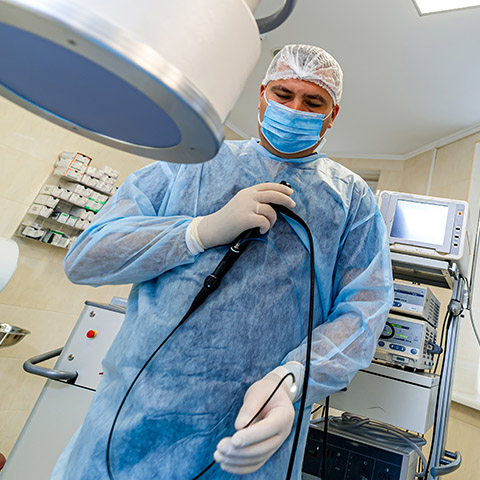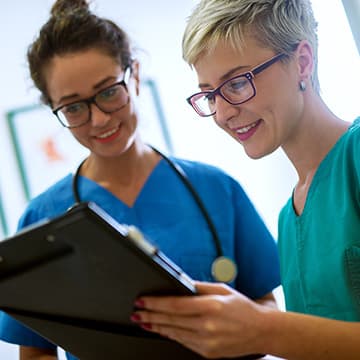Are you looking for a Colonoscopy Doctor in Scottsdale?
Our highly skilled gastroenterology team has many years of colonoscopy experience and advanced training in removing complex colon polyps for patients in the Scottsdale and Phoenix area.
With a modern outpatient clinic and endoscopy area, we're capable of providing immediate and expert care for patients who need colon screening or are concerned about colorectal cancer.
A colonoscopy is an exam that detects colorectal cancer or finds colon polyps before they become cancerous. It can also help to diagnose other diseases of the gastrointestinal tract, such as inflammatory bowel disease, including Crohn's disease and ulcerative colitis.
The procedure involves the insertion of a scope with a tiny camera throughout the entire colon. Colonoscopy is the most popular colon cancer screening technique, administered to millions each year. One of the most significant advantages of a colonoscopy is that the physician can remove precancerous polyps found during the procedure, preventing these polyps from ever developing into cancer.
Our Gastroenterologist can use colonoscopies to diagnose and treat various conditions including:
What to Expect When Having a Colonoscopy
Our team will discuss, in detail, with each patient how to prepare for a colonoscopy. In the days before the procedure, patients will be asked to limit and eliminate certain foods from their diet. They must also cleanse the bowel with an oral laxative so that the test can visualize as much of the colon surface as possible to detect any abnormalities.
During the exam, patients are sedated and should not feel any discomfort. The doctor inserts a long flexible tube through the rectum and moves it through the entire large intestine. As the tube moves through the intestine, the doctor is able to see the lining of the colon, providing the doctor with information about the health of the colon and the presence of any precancerous lesions. If a precancerous polyp is identified, it can be removed immediately during the examination. The procedure itself takes anywhere from 30 to 60 minutes.
After the test, patients stay in a recovery room for about 30 minutes to allow the sedation to wear off. Patients will need to arrange for someone to drive them home.
When to Have a Routine Colonoscopy
For men and women who are at average risk for developing colorectal cancer, we recommend beginning colon cancer screening at age 45. The frequency of repeat colonoscopies will be determined based on the findings of each patient's results from the procedure. For example, an individual with a large number of precancerous polyps will be asked to return for a repeat colonoscopy sooner than an individual with no polyps.
Patients who are at an increased risk of colorectal cancer should begin colorectal cancer screening before age 45 or be screened more often.
Common increased risk factors include:
- Family history of inherited colorectal cancer syndromes such as Lynch syndrome or familial adenomatous polyposis (FAP)
- Family history of colorectal cancer or polyps
- Personal history of colorectal cancer or polyps
- Personal history of chronic inflammatory bowel disease
Scottsdale Colonoscopy and Colorectal Surgeon
Contact us today with any questions you might have about colonoscopies or to schedule an appointment: 480-949-1260.
Related treatment: Phoenix Colonoscopy




